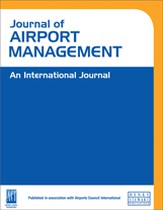Funding aviation security: Regional cost of a national benefit
Abstract
Aviation security failures have an impact much more significant than just the first-line victims. A literature review shows entire industries (eg tourism) and countries (and regions) suffer as a result of a successful attack. The Australian case is examined, in which a documented history of especially government realisation that the current security funding system is unfair and increasingly unaffordable exists. Security charge data is used to calculate the full cost of security provision at a number of Australia’s security controlled airports. A clear pattern is identified. The aviation security system is designed to keep the aviation network safe. It is, however, found that regional and rural passengers are subsidising those from major airports. Considering the data and various international security funding models, it is found that a domestic network security charge will drastically reduce the security cost of all rural, regional and a number of major airports in Australia to only AU$2.71 per passenger. Two major airports are identified that on a per-person basis will be required to make additional contributions to the national aviation network. A number of issues around transparency, affordability and fairness are raised by the data.
The full article is available to subscribers to the journal.
Author's Biography
Salomon Kloppers is a finance and investment professional now working in the airport industry in Australia. He has experience working for listed and international investment houses and banking groups in a variety of senior roles. He has worked for industry associations in both investment and aviation industries, holding various roles focusing on advocacy, research and policy. He has experience working for and managing regional airports, delivering capital infrastructure projects, as well as leading other local government departments. Among others, he completed a number of programmes from the Airports Council International, has a BCom (Hons) in Business Management from the Potchefstoom University, a Graduate Certificate in Airport Management and a Master of Aviation Management from Griffith University. He served as alternate director on the board of the Australian Airports Association.
